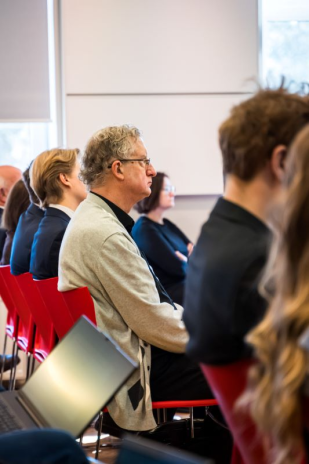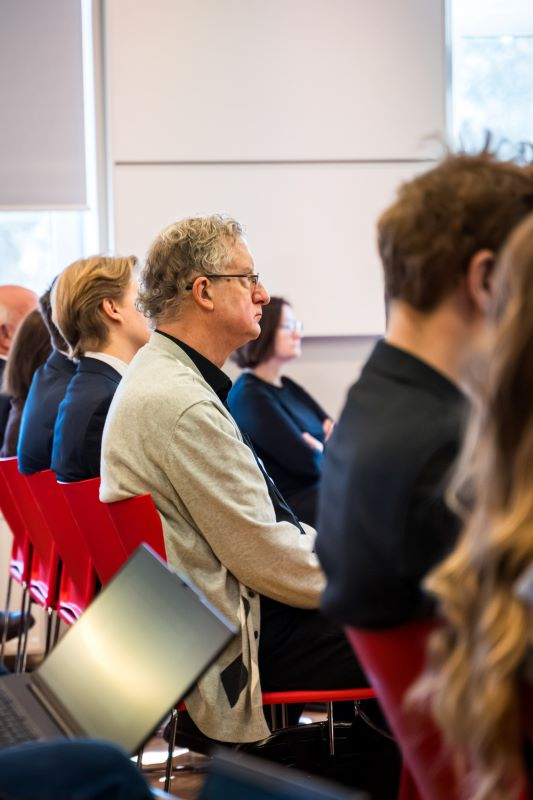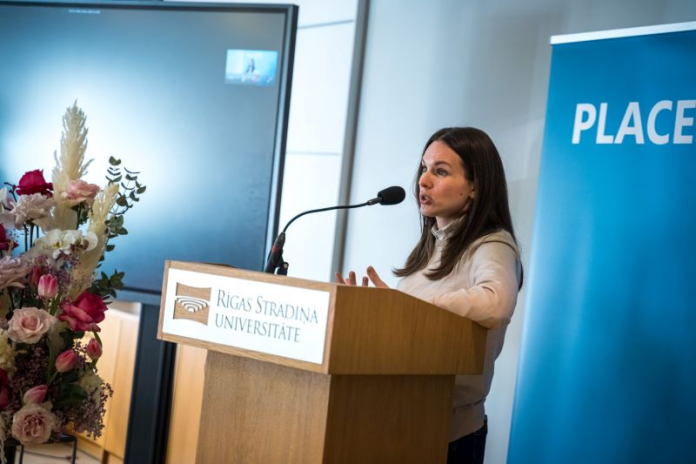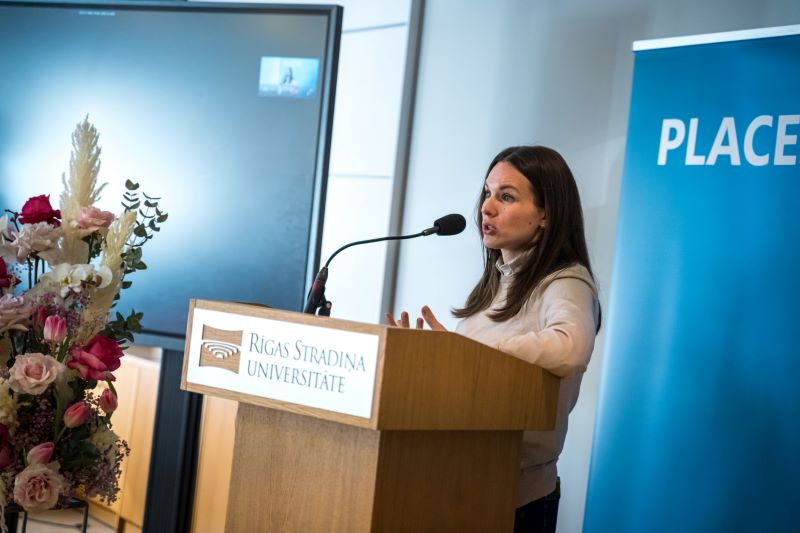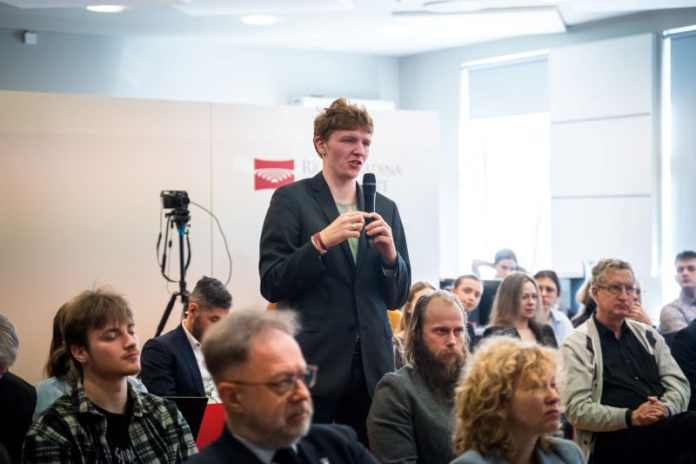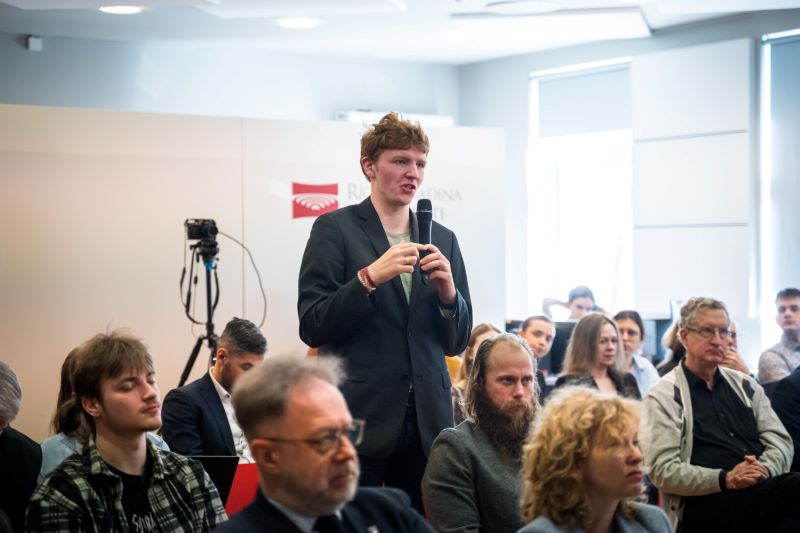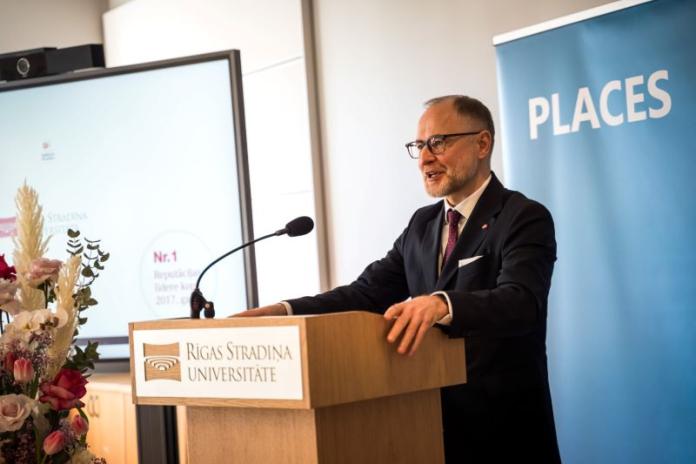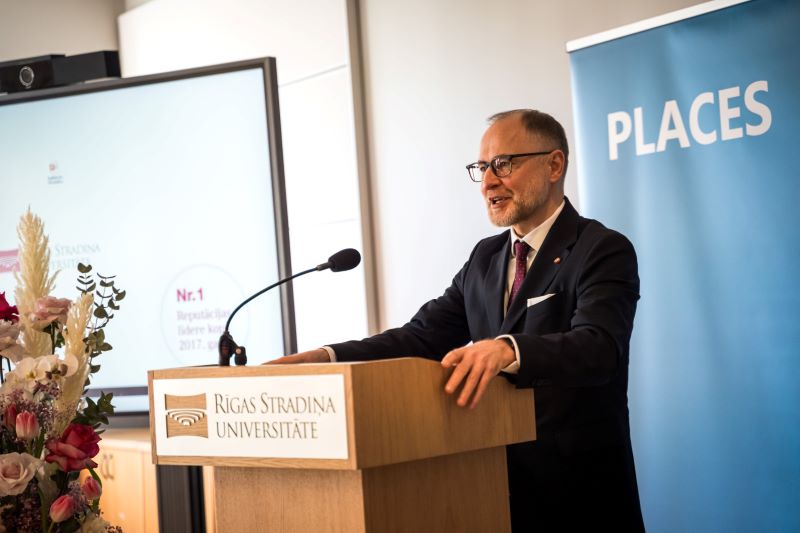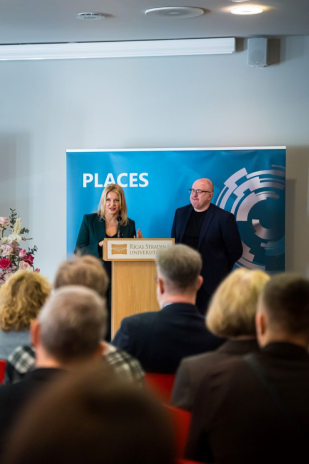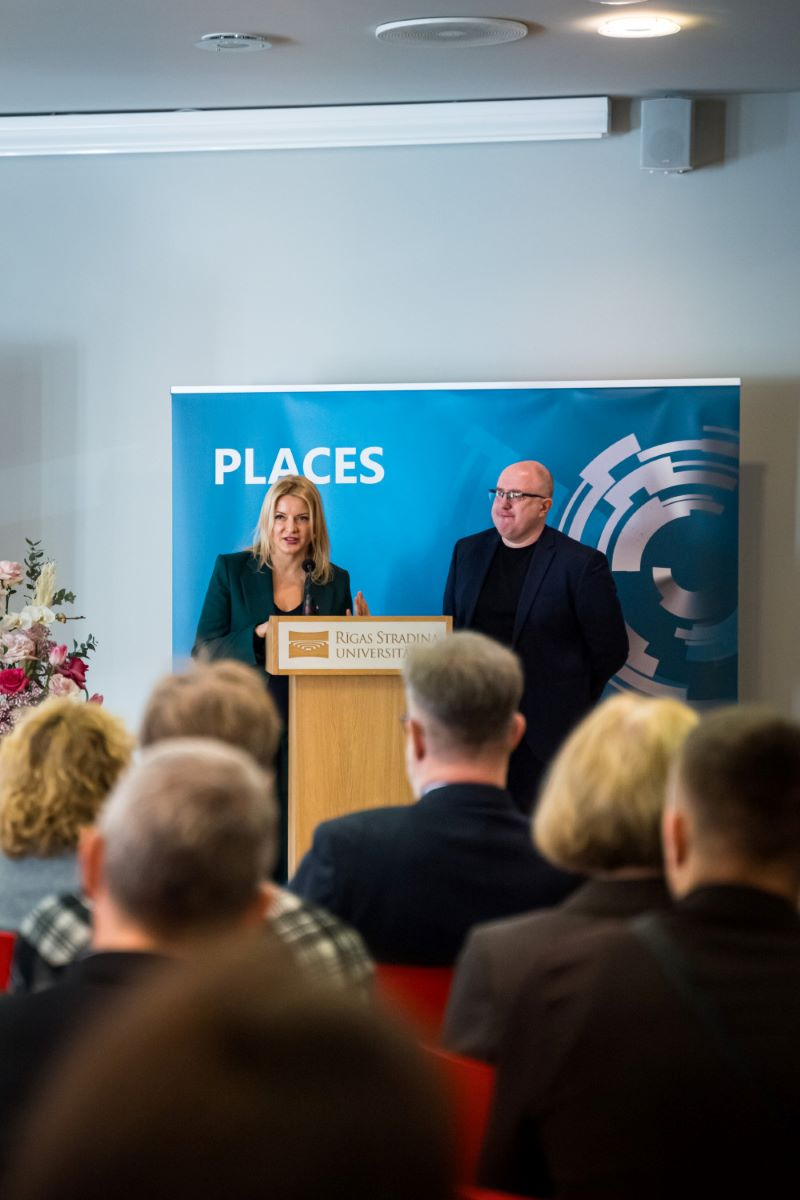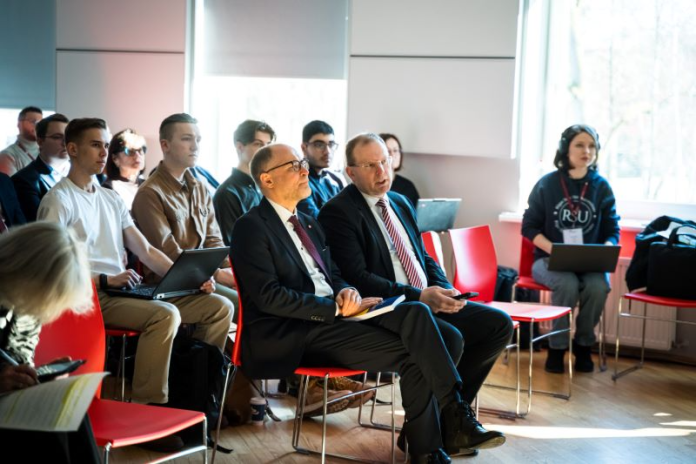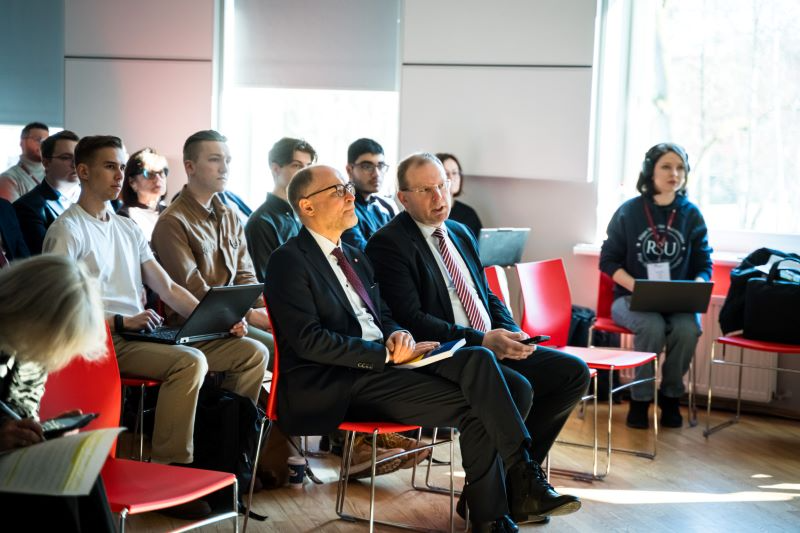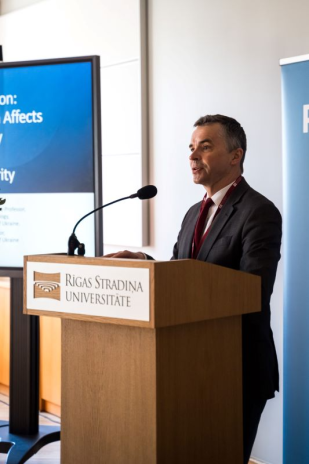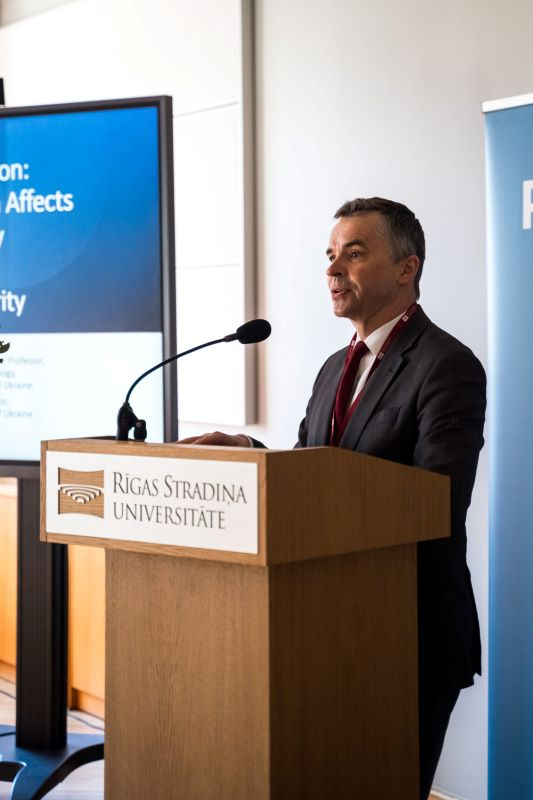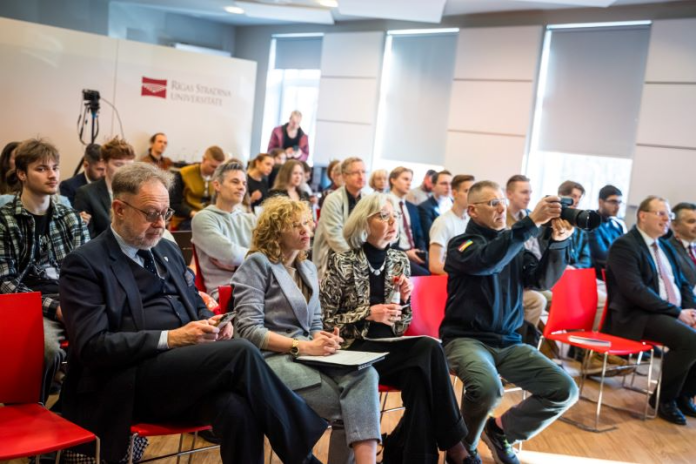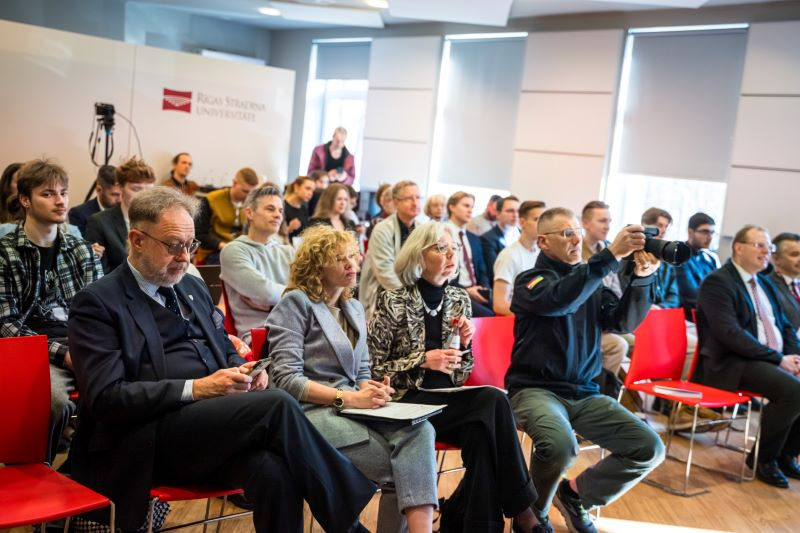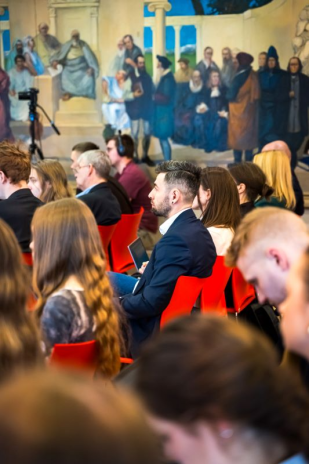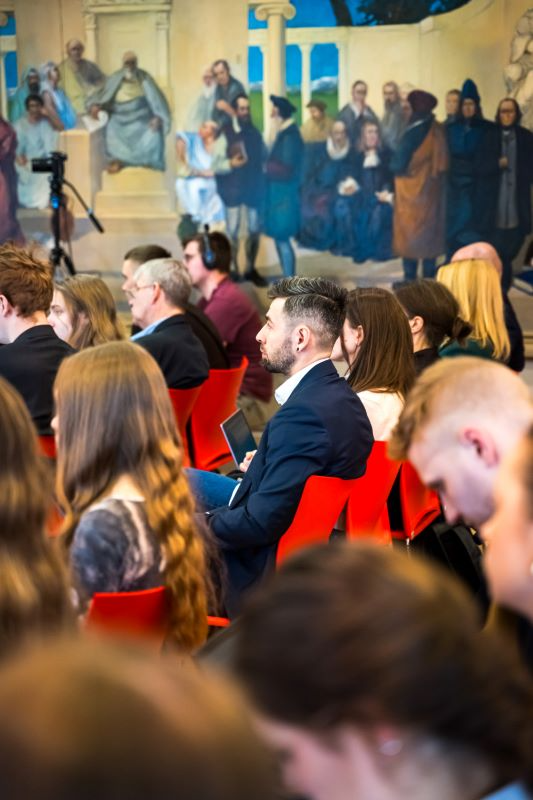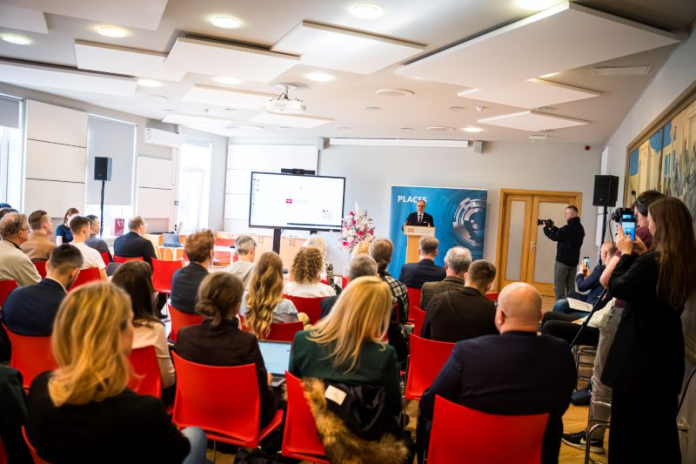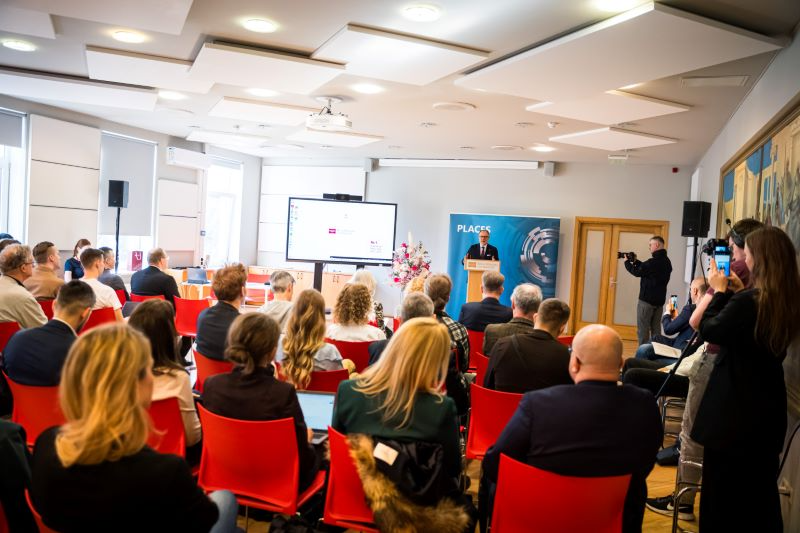Discussion on military and diplomatic tools assesses international security
The evolving landscape of international security policy demands that democracies be prepared to defend their values against emerging threats. This was a key conclusion of the panel Military and Diplomatic Instruments in Sustainable Protection Against Hard and Soft Security Crises in NATO and the European Union. The discussion was opened by RSU Vice-Rector for Academic Affairs Dins Šmits, who highlighted the critical importance of international security in the current geopolitical climate.
Minister for Defence of the Republic of Latvia, Andris Sprūds, outlined Latvia's contributions to security, emphasising that Russia’s invasion of Ukraine is not just a regional conflict but a shift in the international order.
He highlighted the substantial increase in defence funding, set to reach 5% of GDP, and the Latvian Armed Forces' active role in international exercises. The Minister stressed the need for a clear roadmap to navigate these new challenges.
Ukrainian researchers Assoc. Prof. Olena Sushyi and Svitlana Chunikhina, PhD, presented their research on the impact of Russia’s invasion on Ukrainian society and international security.
Their study highlights a growing public aspiration for Ukraine to become part of the EU.
Researchers Ieva Birka and Didzis Kļaviņš examined the preparedness of residents in Riga, Helsinki, Hamburg, and other European cities, analysing their perceptions of security both at the urban and national levels.
Dr Una Bērziņa-Čerenkova presented the commonalities and differences in Chinese and Russian security policy and view of the international order.
She pointed out that, given the political communication between Russia and the US, there is a slight rapprochement between China and Europe.
Professor Sandra Fernandes from the University of Minho, Portugal, discussed shifts in Portuguese security policy in response to Russia’s invasion of Ukraine.
The panel "Military and Diplomatic Instruments in Sustainable Protection Against Hard and Soft Security Crises in NATO and the European Union" is part of the 4th International Conference PLACES programme. It examines the military and diplomatic tools used to ensure sustainable protection against diverse security crises. Military aspects include NATO and EU military capabilities, crisis management operations, cyber security, hybrid threats, and military cooperation between Member States. The panel also explores diplomatic instruments such as diplomatic initiatives, sanctions, international cooperation, conflict prevention, and peacekeeping missions.
These discussions aim to enhance understanding of how to effectively utilise available military and diplomatic tools to ensure security and stability, both regionally and globally. They also promote international cooperation and knowledge sharing, which are vital for successfully addressing today's complex security challenges.

